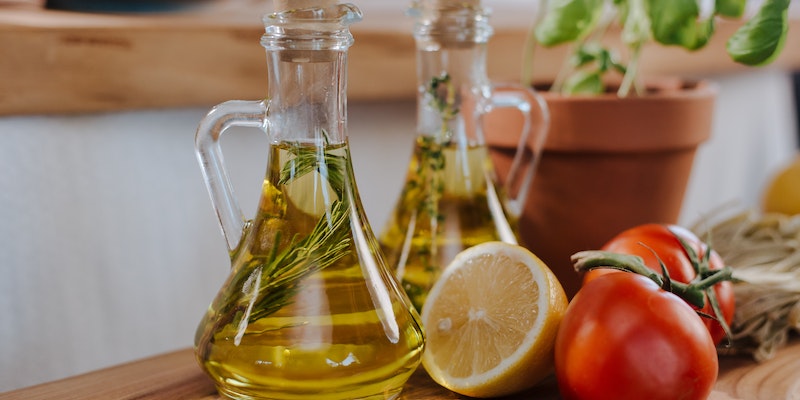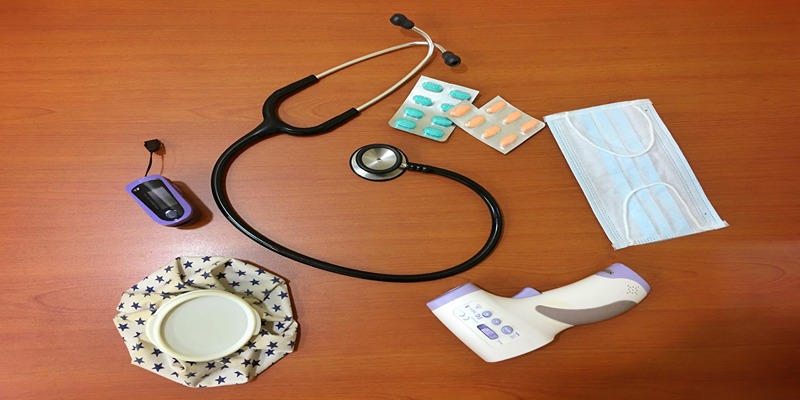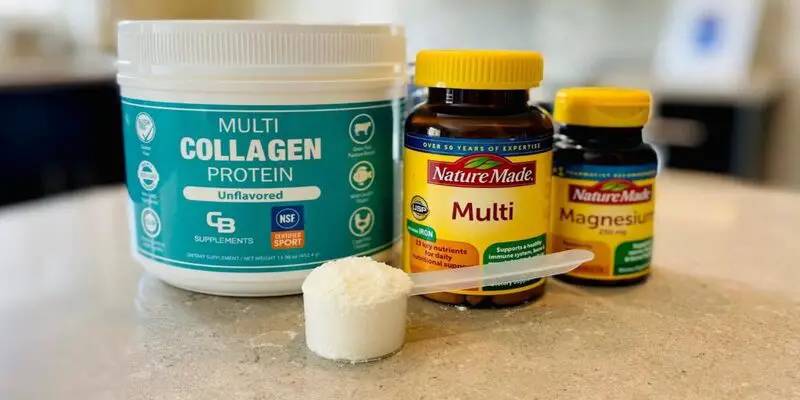Imagine you had a garden full of flowers and they bloom during summer and spring. Suddenly you came across a yellowish-orange flower which is similar to daisy. What if we told you that this isn't a normal flower but a small jackpot from mother nature having numerous health benefits.
In this article we are going to introduce you to Calendula also known as pot marigold. It has been playing its part in domestic and commercial use for ages not in fragrance but as a good friend of human health.
Calendula is primarily highly useful for skin, whether for healing wounds faster, slows down aging, and makes your face wrinkle-free and younger.

Ready to learn more? Let's explore this fantastic flower's history and the science behind its potential benefits. You might discover a golden friend for your natural health journey.
We crafted a thoughtful review of Calendula with all the necessary information a person should have about nature's majesty.
What Is a Calendula?
Calendula belongs to the Asteraceae family, which naturally blooms in Western Europe, southeastern Asia and the Mediterranean. It's a common and known plant easily found in home gardens.
From the 12th century, Calendula has served humanity through medicines, cosmetics, and other supplements. Calendula has two dominant fatty acids, calendic and linoleic acids.
Potential Benefits Of Calendula:
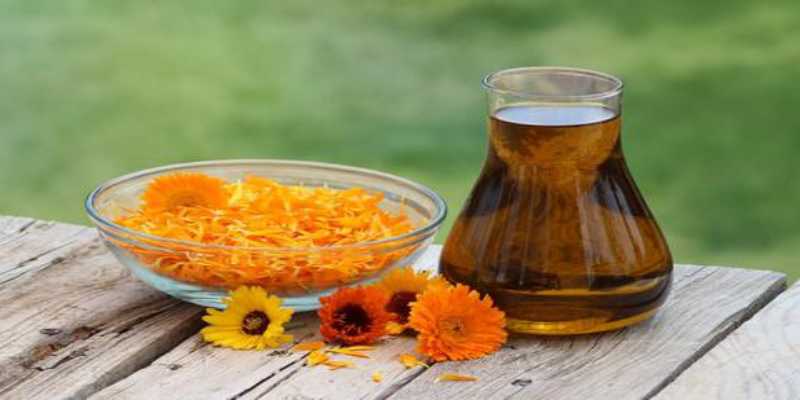
Skin Health:
- Anti-inflammatory effects: Calendula possesses potent anti-inflammatory properties due to flavonoids. This plant-based antioxidant creates a defense line against free radicals and pro-inflammatory cytokines. It can be an effective and powerful remedy for inflammatory issues like diaper rash, dermatitis, ear infections in children, sore throats and many more.
- Wound healing and scar reduction: Caleslow-healingsupplem speeds the recovery four times. It improves skin firmness and hydration. Calendula tea smoothens the blood flow and provides more oxygen to wounds.
- Anti-aging Properties: Calendula flowers have excess carotenoids, which fastens the production of new skin cells to make the skin look refreshed. In addition, collagen boosters reduce wrinkles and lines, making your skin look younger.
- Natural Sun-Protection: direct sun rays on your skin can lead to aging and skin cancers. Calendula has antioxidants like flavonoids, which protect your skin from environmental damage.
Overall Health:
- Heals Ulcer: Studies show that calendula-based gels and topical ointments speed up recovery. In Ulcers, it performs best when taken as a tea.
- Oral Health: What if we told you your toothpaste also has calendula additives due to its powerful antibacterial and antimicrobial activities.
- Cancer Prevention: Research published in the Journal Of Clinical Oncology, Calendula appears as a more compelling topic reagent against the radiation used for breast cancer treatment. It reduces the dermatitis in the targeted area.
How To Use Calendula?
Calendula can easily be harvested in warmer climates, even in pots. They need less care and attention than herbs with the same health benefits. Picked the flowers at the peak of their bloom. Fortunately, the earlier you pick the flowers, the more flowers are produced. So harvest after every three days.
Your second step should be to spread the flowers on a tea towel and let them dry before storing them out of sunlight. Once dried, you can use them as any other herb in the recipe. Note that the maximum storage period of Calendula is three years.
External Use:
- Calendula is available as a dietary supplement, lotion, shampoo, tincture, ointment and cream.
Internal Use:
- Calendula has a bitter, earthy, and slightly sweet taste.
- It is widely used for coloured and flavored bread and broths. (Indirectly, you have eaten it already)
People Who Should Avoid Calendula:
While Calendula offers a variety of potential health benefits, both when applied to the skin and taken internally, it's important to remember that it might not be suitable for everyone. Here's a list of individuals who should exercise caution:
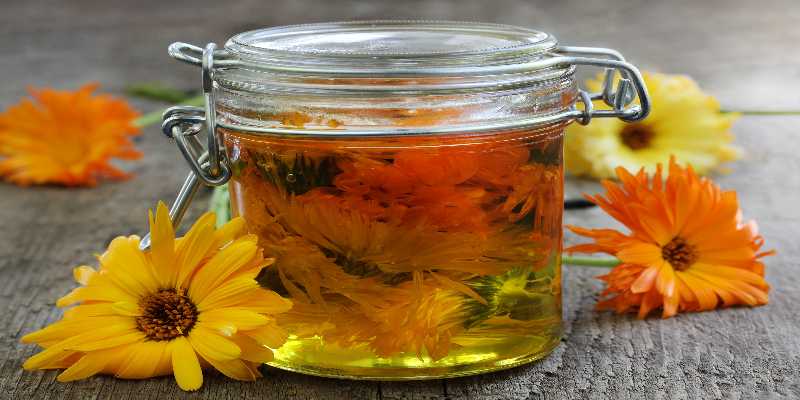
- Individuals with diabetes or blood pressure concerns: Calendula may potentially interact with certain medications used to manage diabetes and blood pressure.
- Women trying to conceive: With limited research studies exposed that calendula have strong relation with female fertility. It's a pro-menstruation herb and may cause critical problems in your conceiving period. Always consult with your doctor before taking calendula or any herb.
- Individuals with allergies to the daisy or aster family: Those with allergies to plants like daisies and asters should avoid Calendula, as it belongs to the same family and could trigger allergic reactions.
FAQs:
Can Calendula interact with any medications I'm taking?
Yes, Calendula might cause sleepiness and breathing problems. So, if you're taking Calendula with sedative medicines, it might cause too much sleepiness or breathing problems. Try to avoid Calendula intake with soothing medication.
Can I use Calendula on my baby for diaper rash?
For centuries, Calendula has been used in baby products as a safe option for infant skin. It can help treat diaper rash and other skin conditions when used topically.
Final Thoughts:
Calendula is an easy to get herb and can harvested in homes too. Its anti-inflammatory and antibacterial properties make it a regular ingredient for skin care products and tooth pastes.
Modern world is shifting towards calendula tea faster than ever. The benefits calendula poses for skin are unbeatable and with continued use are visible too.
However, like any other herb, calendula has few side effects too. It's a pro-menstruation herb so womens and those who want to conceive should strictly avoid calendula in any form. Lastly, always consult with your doctor before adding calendula into your daily diet.
